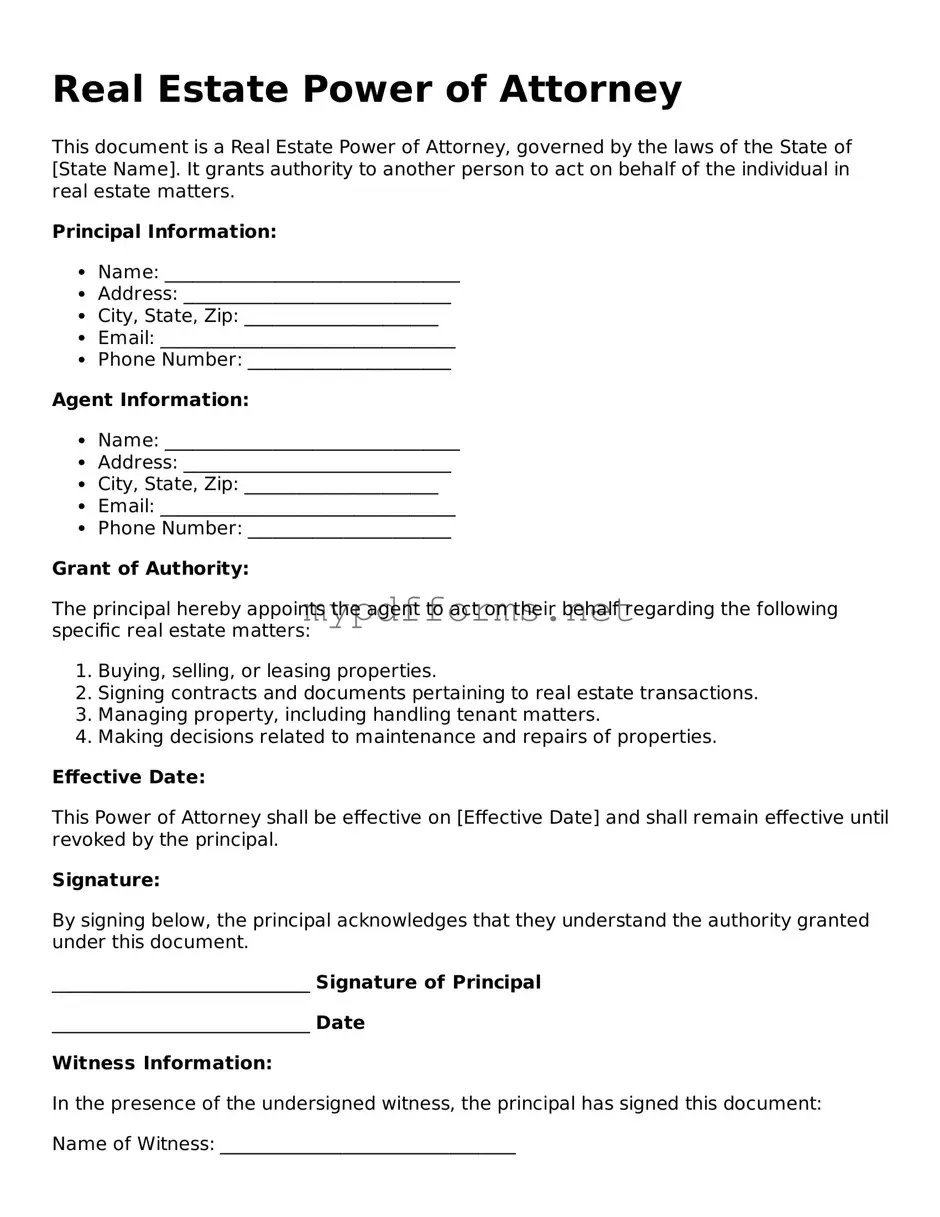The Real Estate Power of Attorney (POA) form is similar to the General Power of Attorney. Both documents grant an individual the authority to act on behalf of another person. While the General POA covers a wide range of decisions, including financial and legal matters, the Real Estate POA is specifically focused on real estate transactions. This specialization allows for more targeted authority when dealing with property-related issues, ensuring that the agent can manage property sales, purchases, or leases effectively.
Another document that resembles the Real Estate Power of Attorney is the Durable Power of Attorney. This form remains in effect even if the principal becomes incapacitated. Like the Real Estate POA, it allows the agent to make decisions on behalf of the principal. The key difference lies in the scope; the Durable POA can cover various aspects of the principal's life, whereas the Real Estate POA is limited to real estate matters.
The Limited Power of Attorney shares similarities with the Real Estate POA, as both grant specific authority for particular tasks. In the case of the Limited POA, the principal can define the exact powers given to the agent. This could include the authority to sign documents related to a specific real estate transaction, making it a focused and controlled approach to delegation of authority.
A Quitclaim Deed also has a connection to the Real Estate Power of Attorney. This document is used to transfer ownership of property without guaranteeing the title. When a Real Estate POA is in place, the agent can execute a Quitclaim Deed on behalf of the principal, facilitating the transfer of property rights smoothly and efficiently.
For anyone navigating the complexities of real estate transactions, understanding the various Power of Attorney forms is essential; those interested in securing the necessary documents can find reliable options through Illinois Forms, which provide easy access to the necessary legal templates and guidance.
The Warranty Deed is another document that operates in the realm of real estate transactions. Similar to the Quitclaim Deed, a Warranty Deed is used to transfer property ownership. However, it provides a guarantee that the title is clear of any encumbrances. A Real Estate POA allows the agent to execute this deed, ensuring that the principal's interests are protected during the transfer process.
A Real Estate Listing Agreement is also comparable to the Real Estate Power of Attorney. This document outlines the terms under which a property will be sold, including the responsibilities of the agent and the seller. When a Real Estate POA is in effect, the agent can sign the listing agreement on behalf of the principal, streamlining the selling process.
The Closing Disclosure form is similar in that it relates to real estate transactions. This document provides details about the final terms of a mortgage loan, including closing costs. If a Real Estate POA is in place, the agent can sign the Closing Disclosure, ensuring that all financial obligations are met and that the transaction proceeds smoothly.
The Lease Agreement is another document that aligns with the Real Estate Power of Attorney. This contract outlines the terms under which a property is rented. With a Real Estate POA, the agent can sign lease agreements on behalf of the principal, allowing for efficient management of rental properties without requiring the principal's direct involvement.
Lastly, the Property Management Agreement is similar in its focus on real estate. This document establishes the relationship between a property owner and a property manager. A Real Estate POA allows the agent to enter into a Property Management Agreement, giving them the authority to manage the property, collect rents, and handle maintenance issues, all while acting in the best interest of the principal.

